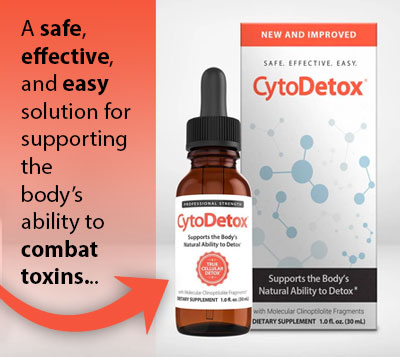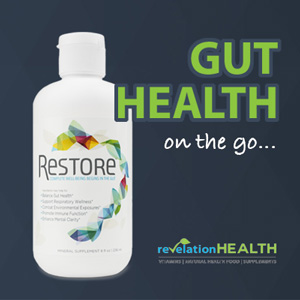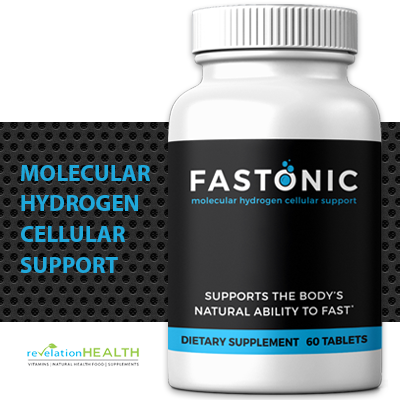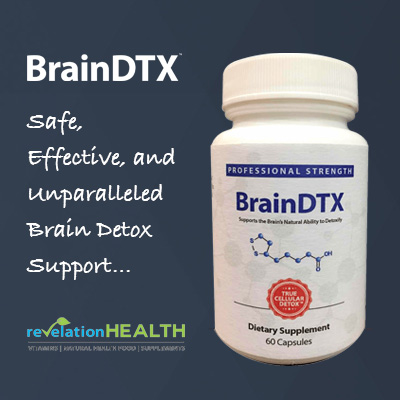Science has raised the alarm about how we have mistreated friends and allies, our oral bacteria. Now is the time for peace, love, and understanding.
Those of us who enjoy microbiology often, fondly, refer to the bacteria, spirochetes, and other denizens of the mouth as bugs. For those with an extra dose of geek in their genes, we love pronouncing their names—not Fred and Clarise, but Actinomyces, Arachnia, Bacteroides, Bifidobacterium, Eubacterium, Fusobacterium, Lactobacillus, Leptotrichia, Peptococcus, Peptostreptococcus, Propionibacterium, Selenomonas, Treponema, and Veillonella.
As science peels back another layer of the microbial onion—the incredible importance that bacteria play to support our health—it’s easy to become alarmed and much chagrined at how poorly we’ve been treating our dear microbial friends, and owe them profuse apologies. My formal apology is included here.
Seems, for our entire lifetimes, we’ve all been brainwashed to hate bacteria because of the behavior of the 3% that behave poorly—you know, the few that maim, kill, and cause epidemics—while the 97% are either commensally minding their own business, or actually trying to help us.
Many people are savvy about the gut-microbiome, but they’ve not yet applied those lessons to their oral microbiome. Like with the gut-microbiome, we need to do the one-eighty turn-around in our thinking and actions.
Here’s some piquant facts to get you salivating:
- Plaque is good for your teeth! – Good plaque that is. A healthy oral microbiome creates a beneficial plaque that protects your teeth. Healthy plaque is smooth, shiny, slick, clean, and even sweet smelling. It does not build ramparts of calculi – layers of cement – on the teeth and gums that cause inflammation. Instead, it prevents calculi and inflammation.
- Bacteria on your tongue manufacture beneficial Nitric Oxide from nitrates in leafy, dark-green vegetables and beets.
May I please specify ORGANIC leafy greens and ORGANIC beets, because your oral microbiome definitely does not approve of pesticides, herbicides, or suicides. Watch out for Genetically-Modified beets. Sadly, all commercial sugar beets grown in the USA are genetically modified, so they can be doused with the carcinogenic herbicide, glyphosate.
Nitric Oxide is what your arteries use to control proper blood pressure. It helps prevent sore muscles. It supports men’s normal, natural erection processes, and women’s reproductive processes as well. Simply put, practically every cell in our bodies uses nitric oxide for life processes and vital functions.
- Oral probiotic bacteria prevent bad breath. By rousting pathogenic, stinky bacteria; healthy, happy, probiotic species keep bad breath species away. Note, many people’s bad breath comes from the expulsion of gasses from the lungs, which may be due to leaky gut and poor liver performance. Bowel gasses can be expelled via the lungs, so the phrase “butt breath” can have a note of veracity in addition to the insult.
Quick Tips For Bad Breath (Without Killing Good Oral Bacteria)
If you are concerned with bad breath of oral causes, correct gingivitis, brush and floss, and scrape your tongue morning and night. Soon the foul odor will diminish and vanish as beneficial probiotic species reclaim their terrain.
- Oral probiotic bacteria help keep your teeth white, bright, and tight. Seems some bacterial species produce hydrogen peroxide – the primary whitening agent used in whitening toothpastes. The history of teeth-whitening goes back thousands of years with use of the following methods: vinegar, urine (yep, that was a Roman thing via the ammonia, “here, kitty, kitty”), and acid treatments. A healthy oral microbiome supports nicely-white teeth (but not the brilliant white of photoshop). White teeth may be offset some if you use coffee, red wine, apply fluoride (mottles teeth), or chew betel nuts. By reducing inflammation and supporting mineralization, probiotic species support strong, tight teeth.
- The oral microbiome supports your gut microbiome. Your mouth makes gad-zillions of bacteria all the live-long day. Down the hatch they go. Those that survive the stomach acid and duodenal alkali become a feeder system of do-gooder transient species that support your health as they pass through your G.I. tract.
- A probiotic oral microbiome fights tooth decay. Even better than killer toothpastes and mouthwashes. Healthy, probiotic species keep the dental-carries species in check and protect teeth.
Mouthwash. Not good.
If you desire to use a mouthwash, there are natural brands that do not cause as much harm as brands with Alcohol, Chlorine dioxide, Chlorhexidine, Cocamidopropyl betaine, Parabens, Poloxamer 407, Formaldehyde, and Saccharin. Or save a bundle and make your own with baking soda and natural salt. Baking soda eliminates odors and natural salt supports remineralization.
Floss. Good, but …
Flossing is a good practice, except when the floss has perfluorooctanesulfonic acids (PFAS) as does Oral B Glide. Oral B refutes the studies saying people probably got the PFAS somewhere else. Why would such a horrendous poison be used in floss? It’s for the same reason it’s used in non-stick skillets – for its slippery slope properties. It’s also used in fire-retardants, so if you use such floss, you can rest assured that your mouth won’t burst into flames from friction. Why are PFAS a concern? How about kidney cancer, testicular cancer, thyroid disease, fertility problems, and immune system disorders. What to do? Use other brands that do not have the easy-slide feature, or a water irrigation device.
So why have we been killing these friendly bugs?
One explanation is that as we increased our intake of refined carbohydrates (snack food) and refined sugar, we shifted our oral bacteria terrain to making a comfy home for unwanted pathogenic species. Those species, while munching on inflammatory sugar, create calculi (plaque) that inflames gums and causes gingivitis. They release unpleasant gasses.
The unpleasant gasses, aka bad breath, diminish sex appeal. So, Freud was right, eh?
Skeletal remains reveal that ancient people had very healthy teeth. In the book, Nutrition and Physical Degeneration, Dr. Weston Price found that people’s oral health declined as they abandoned their indigenous diets and used more processed foods.
Dear Health-Supportive Microbiome Bugs…
I’m so very sorry that I let TV advertising and well-meaning dentists mislead me. It’s true that y’all really do look creepy with all those hairy cilia and ferocious protuberances, wiggling around all the time, but please accept this apology and my commitment to do the right thing.
I hereby promise:
- To never, never use toothpaste with horrendous Triclosan antibiotic. It’s strong enough to kill all you beneficial oral bacteria, plus it can kill human children, and poison the earth’s water supply. I refute the faulty logic that says we must kill bacteria to have a fresh mouth.
- To use microbiome-supportive toothpaste – ones with prebiotics, and nutrients such as Vitamins C, E, D3/K2; zinc; silica; and co-enzyme Q10.
- To never use plaque-fighting, bacteria-killing mouthwash again. I now know it also kills beneficial species that I need for oral, G.I. tract, and whole-body health. And the alcohol in mouthwash dries out the mouth and encourages bad breath to return. There are natural products that can rinse the mouth and support your healthy presence.
- To include leafy greens and beets in my diet to provide nutrients for both your and my health.
- To avoid using tea tree oil toothpaste because it kills you in addition to pathogenic species. With regular use, it can cause bacterial species to mutate to become resistant. I love tea tree oil, but I’ll use it topically only when needed for addressing situations when pathogenic species get uppity.
- To never use Xylitol or Sorbitol (alcohol-sugars) because y’all choke on it. It may be better than sugar, but it’s not optimal and it’s risky to have around because it’s highly toxic to dogs. Processed from GMO corn (though a little does come from Birch), it creates an imbalance in the microbiome, and if swallowed can cause acid reflux and other G.I. disturbances such as enough gas to get a person banned from using elevators.
Please quorum sense (how bacteria communicate survival traits to its neighbors) and pass this apology forward. Thanks so much for protecting my teeth and gums, and for giving me sweet oral health.
Oral Bacteria Strategy
With this information you can design your own strategy to help shift your oral microbiome and oral bacteria health toward a more natural, supportive terrain and inhabitants. First, clean out the bad buys, then help the good guys proliferate, then maintain.
1. Pathogen Purge
Many people need to undo a dysbiotic oral microbiome. They have created a terrain that supports bad bacteria, either by constantly offending the oral microbiome with bacteria-fighting/plaque-fighting practices (the bad guys simply return with the next bite of candy); and/or by dietary indiscretions such as snacking on sweets and refined carbohydrates (chips, cookies, sodas.)
Side note on drinking sodas. Artificial sugar “diet sodas” are actually worse for your cellular health than sugar sodas, and both should be considered as poisons because of the phosphoric acid that can erode your teeth like a penny in Coca Cola overnight.
Starting to shift your oral microbiome toward colonizing beneficial species, it can be helpful to knock off a few billion pathogens with practices such as oil-pulling—the East Indian practice of swishing oil (sesame, olive, coconut) through your teeth for 20 minutes to remove embedded bacteria between the teeth and under the gums. This means do a few sessions of oil pulling but don’t make it a frequent habit after you establish a beneficial, probiotic terrain. No need to wash out the good guys, but it can help remove embedded bad guys.
2. Reseed
Build your beneficial oral bacteria. This is done primarily with prebiotics, and some probiotics can be supportive as well. First support the terrain with a prebiotic toothpaste. Chew raw sauerkraut and swish the juice. Include raw vegetables and fresh lettuce. The beneficial soil-based organisms are inside the leaves.
While not as important as prebiotics (fibers), it can be beneficial to use an oral microbiome product. Generally, because the oral microbiome changes with every food, beverage and even with your mood; it’s too capricious and variable to assume that oral probiotics can really do much. New science points to some benefit for oral microbiome products such as probiotic mouthwashes and supplements. Now is the time to use probiotics to flood and re-inoculate your mouth with lots of good guys. They won’t necessarily stay around, but they can help with the shift to a more natural, oral microbiome. And they can help displace unwanted species.
3. Maintain
Use a prebiotic toothpaste and occasional use of oral probiotics to establish a terrain conducive for your immune system. Establish new relations with species that your genetics support. Use fermented foods—small amounts daily are great. Use organic foods. Avoid GMO glyphosate herbicide—it directly attacks your probiotic species shikimate pathway causing destruction and mutation.
Now your renewed oral microbiome is ready to speak truly, when necessary, and kindly. ☺
ORAL BACTERIA: QUIRKYHEALTHTIPS
You can start today. Apply the strategy shared above. Toss toothpastes and mouthwashes that disturb your oral microbiome. Replace them with prebiotic, nutritionally supportive toothpaste. Brush after every meal. This might mean putting a travel toothbrush in your pocket or purse.
Happy Bugs! — WellnessWiz Jack
Quick Guide To Toothpaste Ingredient Avoidance:
Artificial flavors — known to cause: depression, dizziness, chest pain, headaches, fatigue, allergies, brain damage, seizures, genetic defects, tumors, bladder cancer, nausea, etc.
Carageenan – a derivative of sea weed which sounds good, but in this case it’s linked to colon ulceration, ulcerative colitis, and fetal toxicity.
Neem Oil – an antimicrobial agent that disturbs the beneficial oral microbiome. Not for daily use.
Red, Blue, Yellow Food Dyes – contain compounds including benzidine and 4-aminobiphenyl, that research has linked with cancer.
Detergents – Sodium Lauryl and Laureth Sulfate are detergents that strip all bacteria (including the good guys) from the teeth and gums.
Artificial Sugar – Sodium Saccharin – formerly suspected of causing cancer, now considered a glucose metabolic disrupter that causes weight gain.
Sodium Fluoride has been banned in many countries. This is a thyroid disruptor, and linked with low intelligence.
Sorbitol — an alcohol sugar. Disturbs the oral and gut microbiomes; disrupts biodiversity, aggravates beneficial species. Often fatal for dogs. Causes gas.
Tea Tree Oil – an antimicrobial agent that disturbs the beneficial oral microbiome. Not for daily use.
Triclosan – a powerful, non-biodegrading antibiotic, adapting bacteria become more virulent thus increasing inflammation. Being found in municipal water due to Colgate’s triclosan toothpaste.
Xylitol – an alcohol sugar. Disturbs the oral and gut microbiomes; disrupts biodiversity, aggravates beneficial species. Often fatal for dogs. Causes gas.









39 Comments
Leave your reply.